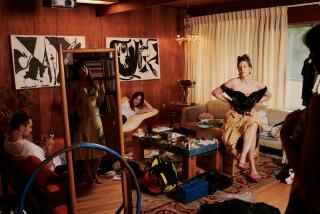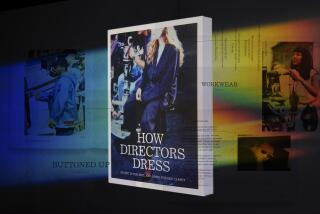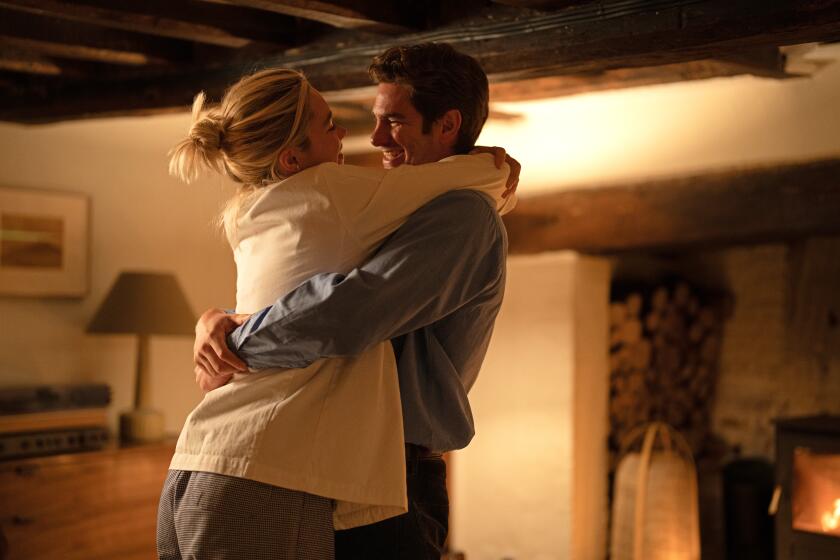Q&A: ‘Bridge of Spies’ costume designer says it takes ‘insane discipline’ to get it right
Costume designer Kasia Walicka Maimone has learned the art of teasing the truth out of true stories. She’s dressed actors who portrayed real-life characters in “Black Mass,” “Foxcatcher,” “Moneyball” and the forthcoming “Deepwater Horizon.” As the designer of Steven Spielberg’s Cold War drama “Bridge of Spies,” Walicka Maimone dressed star Tom Hanks as James Donovan, the American insurance lawyer who defended Russian spy Rudolf Abel and then negotiated to exchange him for imprisoned American spy pilot Francis Gary Powers and student Frederic Pryor.
In this story mostly about men, Walicka Maimone created costumes to conjure conservative law firms, countless government office workers, soldiers and prisoners. The 4,000 costumes dress characters through tense international negotiations, the building of the Berlin Wall and through many forbidding and snowy streets.
“Bridge of Spies” isn’t a big costume drama, but it looked almost as difficult to produce. What were some of the challenges?
A story like this has a very quiet vocabulary. It is almost more difficult to work on them. You need to have that insane discipline about what is right for the frame and not what will aesthetically look better. You have to make sure your language is not louder than anyone else’s.
See more of Entertainment’s top stories on Facebook >>
A critical piece of storytelling in the movie concerns Donovan’s coats, particularly the one he wears in Russia after his nice, American overcoat is stolen. What was the Russian coat saying?
We definitely took some movie language license in the choice of that coat. It had to be different enough from the navy, classic-line coat that was stolen. It was written in the script that Donovan gets a big oversized coat that doesn’t fit him. It needed to feel like a stranger, a coat that is clearly not his, so that it became the language of the “other.” I took a very similar coat from photo research of an older man of East Berlin and made it in a slightly lighter shade because most of the sequences were to be shot after dark.
You shot in New York, Germany, Sacramento and Poland, with a huge cast and many different branches of the military and government. Was there a particularly difficult costume?
We had a prison scene with the Russians and no one really knew what the Russian prisons look like. We finally found one picture of Russian prisoners behind the gate ready to exit. Even just in the prisons — America, Russia, Germany — there was a very different vocabulary of the world. Each reflects the mentality of the countries. We have only three minutes on the screen, but for us it was a discovery of a whole world.
You have said that it was a privilege working on this film. How so?
I grew up in Poland, half the year in a tiny town and half the year in the country, pretty much in the middle of nowhere. You have to drive six hours from Warsaw [to get there]. The first morning of shooting in Wroclaw, I had this big smile. I said to Mr. Spielberg, “This is crazy fun, to be with this film today in my home country.” And it was the first film I’ve ever worked on in Poland. It was pure joy.
Were you able to draw on your European roots for insight into the feeling of the Cold War scenes?
I grew up in that time, when the [Berlin] Wall was going down. All of us, living in a communist country, it was such a time of freedom. But to re-create the wall going up, it was a very powerful experience. Working on this film, we live it. We know everything about the story to bring it to life. It’s not like a documentary, but if you study it well and stick to your research, things will resonate as the truth, even if you reinterpret it.
Follow The Times’ complete coverage of the Golden Globes and Oscars
More to Read
From the Oscars to the Emmys.
Get the Envelope newsletter for exclusive awards season coverage, behind-the-scenes stories from the Envelope podcast and columnist Glenn Whipp’s must-read analysis.
You may occasionally receive promotional content from the Los Angeles Times.








